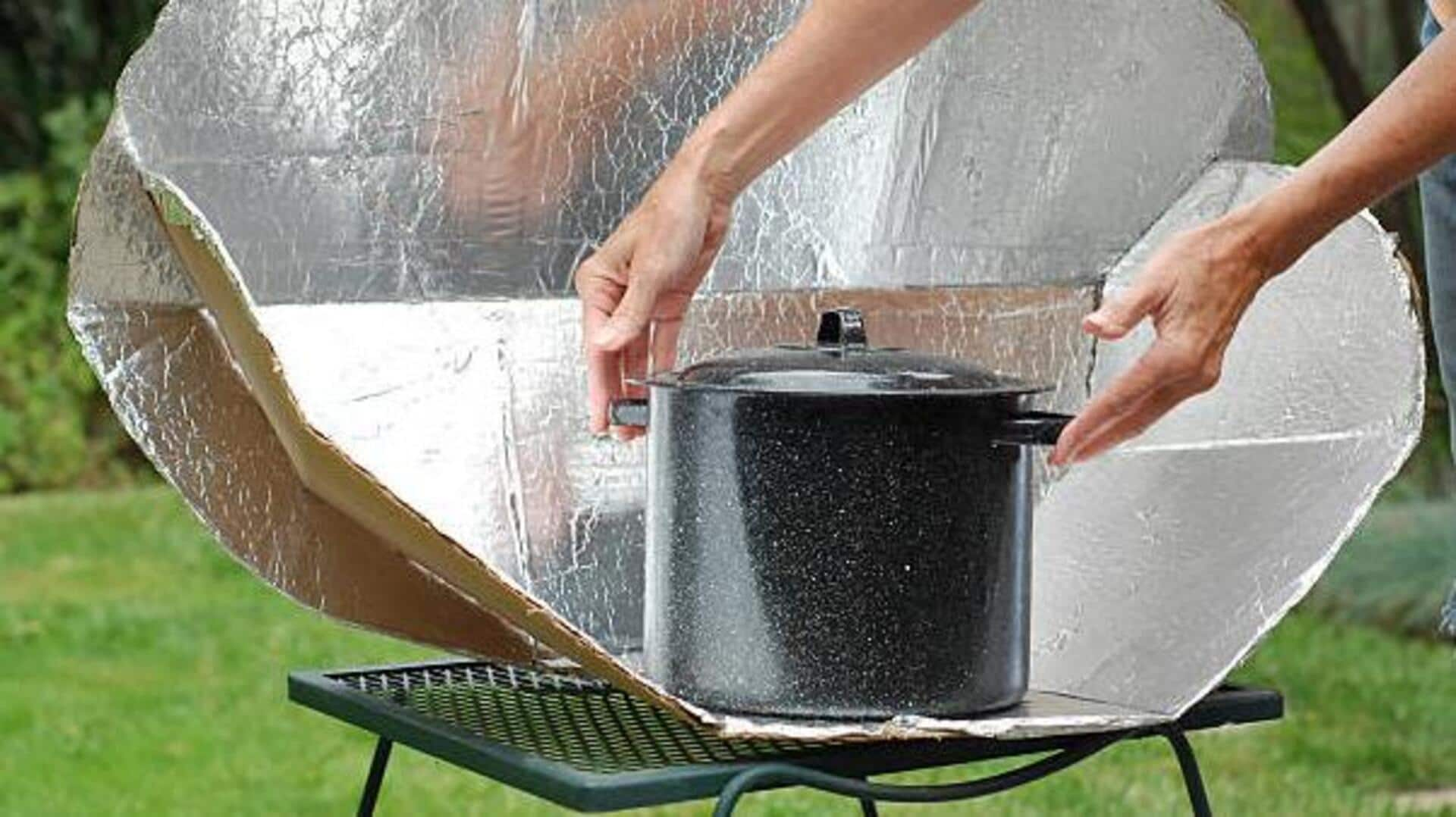
Get started with solar cooking: Why it's important
What's the story
Solar cooking is a revolutionary and eco-friendly way to cook food using nothing but the sun's rays. This method saves energy and provides a whole new canvas for chefs to experiment and innovate. Worldwide, solar cooking artists are earning accolades for their skill in combining environmental stewardship with culinary artistry, producing meals that taste as good as they are green.
Evolution
The rise of solar cuisine
The world of solar cooking has exploded in popularity as more people become environmentally conscious and strive to shrink their carbon footprints. Solar cooking artists have played a crucial role, demonstrating that harnessing the sun's power can be both practical and gourmet. Their creativity and pioneering spirit have encouraged many to incorporate solar cuisine into their culinary practices, marrying environmental stewardship with the art of cooking.
Equipment
Tools of the trade
The paintbrush of a solar cook is the solar cooker. There are many types: box cookers, parabolic cookers, and panel cookers. Each one is special. Some are perfect for baking, others for grilling or boiling. Many artists customize their tools. They tweak them to be just right for a certain dish or to work even better. All the different cookers show how creative and clever everyone is!
Ingredients
A palette of flavors
Solar cooking artists say the secret to their craft lies in choosing the right ingredients. Since solar cooking operates on lower temperatures and longer durations than traditional methods, selecting ingredients that shine under these conditions is key to unlocking delicious flavors and textures. Many chefs gravitate toward fresh produce and grains that naturally excel in slow-cooking environments. These ingredients can develop deep, complex flavors under the sun's gentle heat.
Impact
Sustainable artistry
Apart from serving up mouthwatering dishes, solar cooking artists are leading the charge in making gastronomy greener. By harnessing the sun's power instead of relying on fossil fuels or electricity to cook, they slash the carbon footprint associated with meal prep. Plus, many of these artists champion the use of locally sourced ingredients, further bolstering eco-friendliness by supporting local economies and minimizing transport-related emissions.
Advice
Tips from solar chefs
If you are interested in trying solar cooking, experts recommend starting with simple recipes that require minimal effort. They emphasize the importance of monitoring the weather closely, as it significantly impacts cooking times. They also suggest experimenting with different cookers to find the one that works best for you. And, most importantly, be patient. Figuring out what works best in different conditions will take some time and practice.